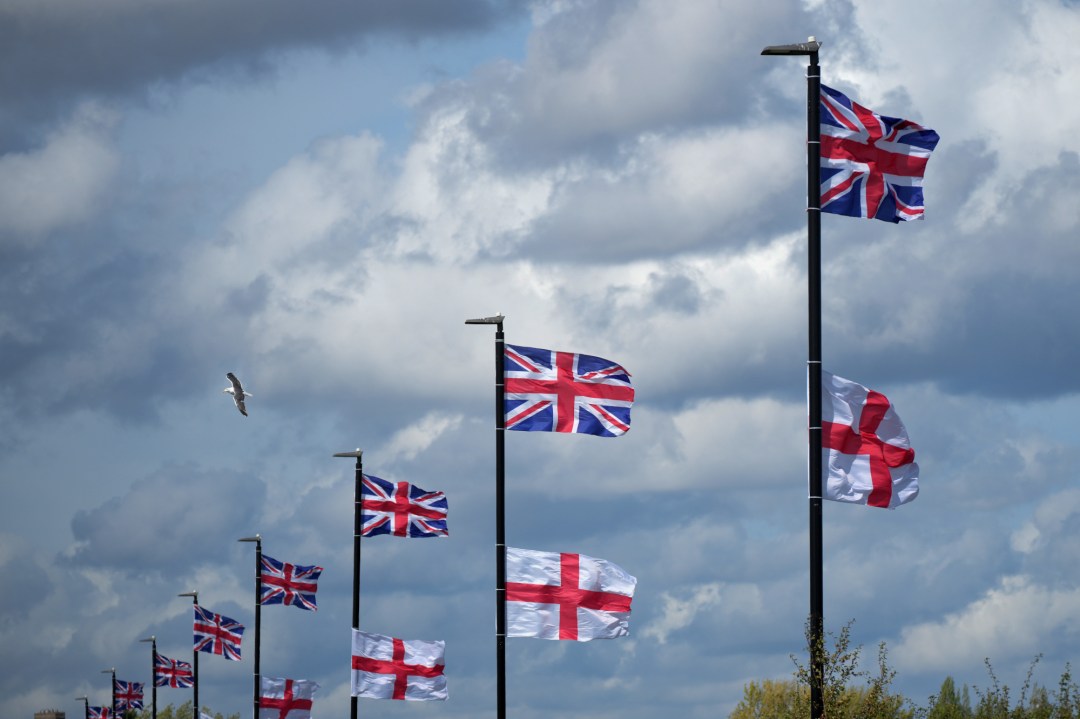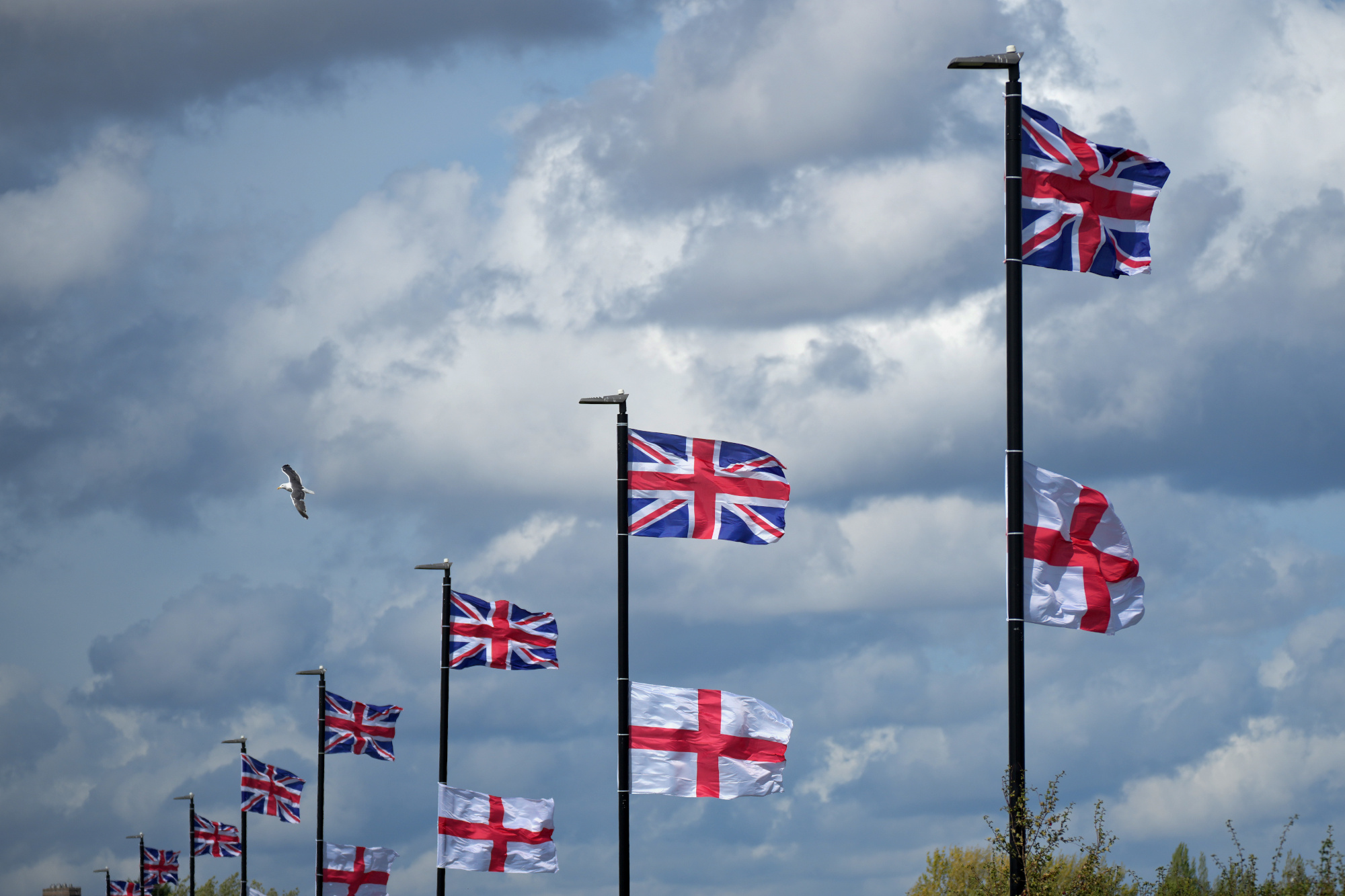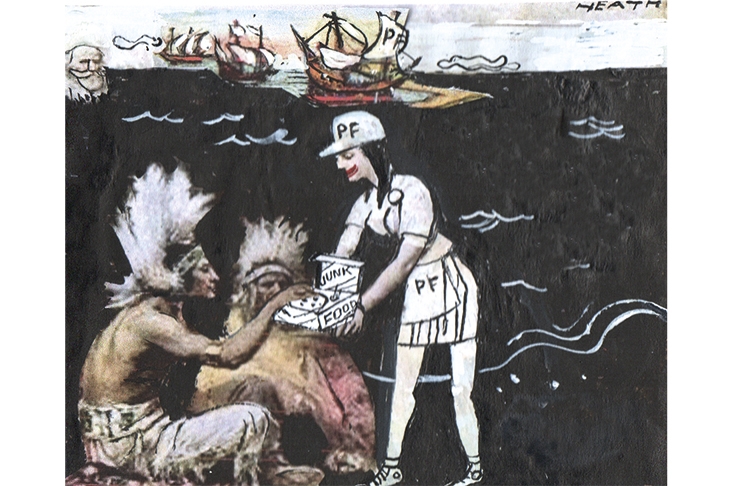Operation Raise the Colours, a grassroots movement to adorn our towns and cities with England flags, has swept across the country. It has even hit Liverpool – long mythologised as a bastion of left-wing exceptionalism, and where Labour conference starts today. St George’s crosses can now be found across the north of the city: Dovecot, Knotty Ash, Aintree, Fazakerley, Orrell Park and Walton have seen lamp posts adorned with the national flag, as has Huyton to the east. Not everyone is happy with this display of patriotism, as this Reddit thread suggests.
Liverpool is not as politically unique as its left-wing cheerleaders want you to believe
Those who are offended at seeing the national flag fly in the home of the Beatles point to the well-known mantra of ‘Scouse not English’: the idea that Liverpudlians are a distinct group, more Celtic in heritage and so somewhat separate from, or distinct to, the rest of the country. To these people, flying the England flag is seen as ‘cringe’, ‘embarrassing’, or, worst of all, ‘wool behaviour’ (a ‘wool’ being the pejorative name given to those from the Merseyside area surrounding Liverpool).
‘Scouse not English’ has become something of a truism and has captured the cultural imagination both in Liverpool and further afield. Unfortunately, this truism isn’t true. My own research has found that people in Liverpool (and Merseyside more broadly) generally hold Scouse and English identities. Eighty-five per cent of people in Liverpool say they are a mix of both, 8 per cent believe they are exclusively English, and just 3 per cent are exclusively Scouse.
‘Scouse not English’ is linked to another well-worn myth – that Liverpool is a solidly left-wing city. Proponents either argue that Liverpool has always been a bastion of left-wing politics (in reality, the Conservatives ran the council until 1972 and had MPs in the city until 1983), or they point to the 1980s, when Militant Labour struggled against the Thatcher government, as when the city became exclusively left-wing. They rightly note that Liverpool has returned only Labour MPs in every election since 1997, and that Labour dominates the city council.
But as I argue in my book, Whatever Happened to Tory Liverpool?, the Thatcher-Militant struggle did not make Liverpool left-wing, it made it anti-Tory. Around 75 per cent of Scousers agree that ‘real Scousers don’t vote Tory’. But that doesn’t mean they blindly support Labour either. In 1998, at the height of New Labour, the Liberal Democrats took control of Liverpool City Council. Even though Labour dominates the council today, politicians are often elected on meagre turnouts – in 2023, two Labour councillors were returned on just 10.7 per cent. Liverpool does not love Labour – and often it feels like Labour does not love Liverpool.
Other facts are also conveniently forgotten to fit the narrative that Liverpool is a left-wing city. In both the 2014 and 2015 local elections, Ukip came second in around half of Liverpool’s wards, overwhelmingly in the poorer, more working-class north of the city. In the EU referendum, more people in Liverpool voted to leave (85,101) than voted for Labour in that year’s local elections.
It’s clear that Liverpool is not as politically unique as its left-wing cheerleaders want you to believe. When trends like Operation Raise the Colours come to Liverpool they are conveniently swept under the carpet by the local commentariat to maintain the left-wing Liverpool myth.
This will soon come home to roost: Reform is on the rise across England, and once again Liverpool is no different. A recent MRP poll had Reform neck-and-neck with Labour for the seat of Liverpool Walton. No wonder the Labour MP Dan Carden has pivoted from being a member of the Corbynite Socialist Campaign Group to a leading member of the Blue Labour caucus. Such is the power of the Reform tsunami that even MPs with a 55 per cent majority don’t feel safe.
Before the next general election, however, Liverpool has local elections. We have seen Reform do well in the nearby borough of St Helens, winning two by-elections – one from Labour and one from the Liberal Democrats – as well as take the Runcorn and Helsby Westminster seat from Labour last year. We should also expect big gains for Reform across north Liverpool: they are likely to become the main opposition on the council with around 20 to 25 seats, and up to 40 on a good day if the local party can get itself together.
What is now just a few flags fluttering in the north of the city may end up symbolising a political realignment. It is not impossible that we will see left-wing Liverpool with a Reform opposition on the council and a Reform MP in parliament. That would truly kill off the myth of ‘Scouse not English’.








Comments